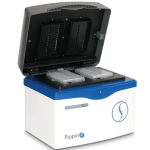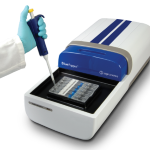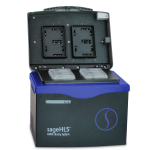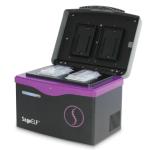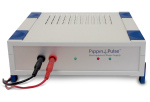At the Broad Institute, scientist Michelle Cipicchio is part of the technology development team responsible for optimizing new methods or sample types before they’re implemented on the organization’s industrial-scale exome and whole-genome sequencing pipeline. Recently, she’s been working with the Chromium platform from 10x Genomics, and part of getting it ready for production involved implementing the PippinHT for automated DNA size selection.
The technology development team is focusing on whole genome analysis with the Chromium platform. To put the workflow through its paces, they’re running a pilot project on 450 whole blood samples for scientists conducting a large schizophrenia study.
Cipicchio began working with automated DNA size selection from Sage Science at the recommendation of 10x Genomics. “The first step in the 10x process requires the longest DNA molecules that you can acquire,” she says. Since the Broad often uses legacy samples that have gone through multiple freeze/thaw cycles, her team doesn’t have the luxury of expecting high-quality, intact DNA. “For 10x, these long molecules are really necessary and most of our samples don’t have a ton of that kind of material,” Cipicchio adds. She began using BluePippin to remove smaller fragments prior to library construction. The team evaluated four samples with and without Pippin size selection and found that they were consistently able to get longer phasing data with automated size selection. To ramp up capacity so all 450 samples can be run with size selection prior to Chromium processing, the team upgraded to the higher-throughput PippinHT platform.
Optimization work for the workflow is still underway. Cipicchio and the team have run about 100 of the 450 samples so far, so they have lots more opportunities to polish and perfect the protocol before it’s ready for production mode.
